Hekani Jakhalu quit her dream job to help youth in Nagaland get jobs
A lawyer by profession, Hekani Jakhalu founded YouthNet in 2006 to give employment and entrepreneurial opportunity to youth of Nagaland.
India’s northeast has long been considered a neglected area when it comes to creation of employment opportunities, leading to high migration among young people.
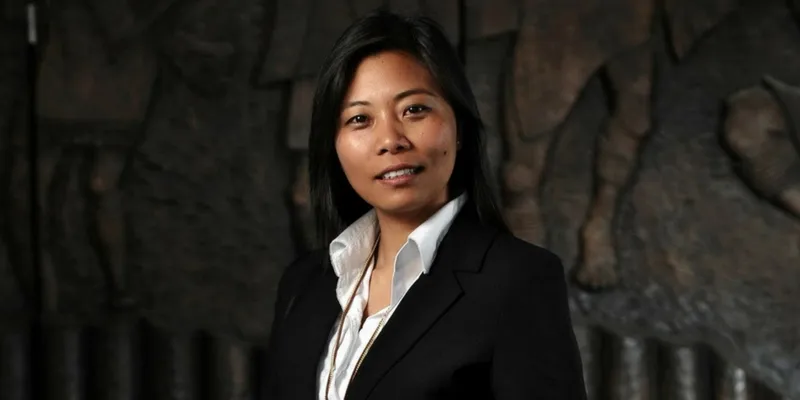
Realising this gap, Hekani Jakhalu, a Delhi-based lawyer, resigned from her high-paying job and, in 2006, founded YouthNet in Nagaland, which helps in empowering youth. Having practiced at both the Supreme Court of India and Delhi High Court, Hekani started YouthNet with a group of friends.
Choice or compulsion?
Hekani was raised in Dimapur and was with her mother for most of the time as her father, who was in the army, travelled frequently. She later moved to Bengaluru, and then Delhi for higher studies, and studied law at the University of Delhi and then the University of San Francisco, US.
“I always wanted to be a lawyer,” she says.
“I come from a middle-class family, and studying in the US was not easy. I had to take a student loan, and the lifestyle in the US was quite expensive.”
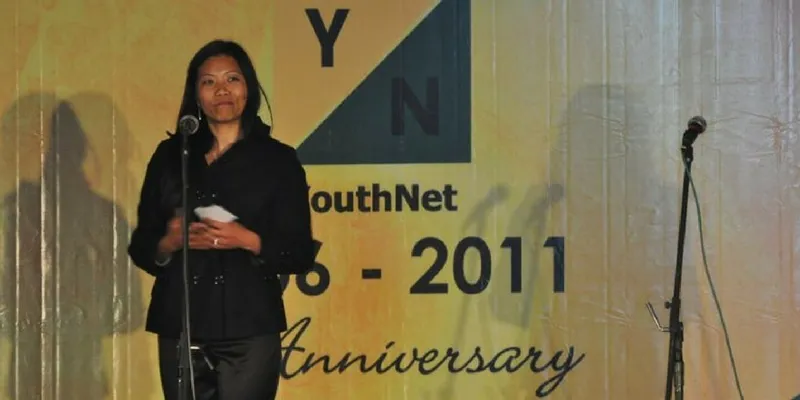
A faculty position in Washington, and an internship at the UN later, Hekani was back in India, where she was offered to be a partner in a law firm in Delhi practicing civil and corporate law. “It was like a dream come true. I joined in there and worked for less than two years. The turning point came into my life in 2004-2005, when India was seeing a boom in the retail sector.”
She asserts,
“At every store in every mall, you could see young boys and girls from the northeast working there. I wondered what was driving young people from the northeast to the metros. Was it out of choice, or compulsion? Also, as most came from small villages, these cities were not safe, were expensive to live in and culturally different,” she adds.
The crossroads
Hekani saw youngsters from the northeastern states of the country moved to other parts as there was not enough employment in their home states. In fact, the Government of Nagaland had a capacity building programme which offered to send youth from the state to study or train in various vocations in different parts of the country. However, after this, many chose to stay back and seek jobs in larger cities.
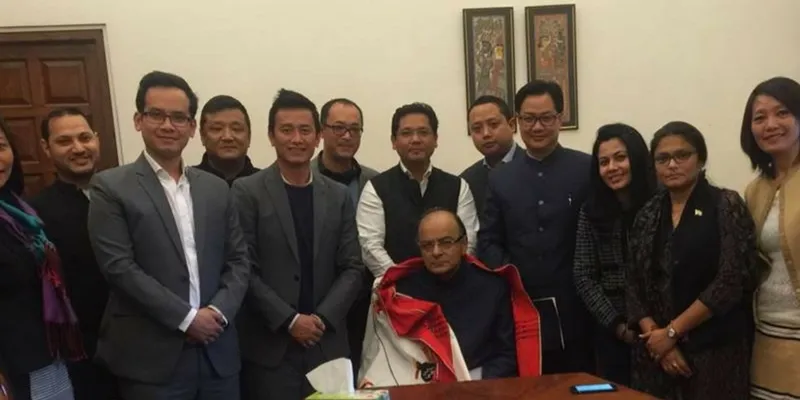
“They did not have any job growth as they were competing with people who had a degree/diploma in the field. They might sustain for a year or two, but after that there was nothing for them.”
That is when Hekani decided to do something and resigned from her job.
“I never thought of opening an NGO until then as I was doing my dream job, and had a huge student loan to repay.”
“I had really no idea what could I do for the youth, until I meet the then Chief Minister and explain him. He understood my passion and that gave me a lot of confidence and hope,” she adds.
The team
With YouthNet, Hekani started a job centre, where local youth are recruited into the hospitality and retail sectors. Hekani explains, “We have tied up with hotels, showrooms, beverage companies and many others, who provide local youth who have studied in Nagaland jobs like sale executives, and managers according to their qualifications.”
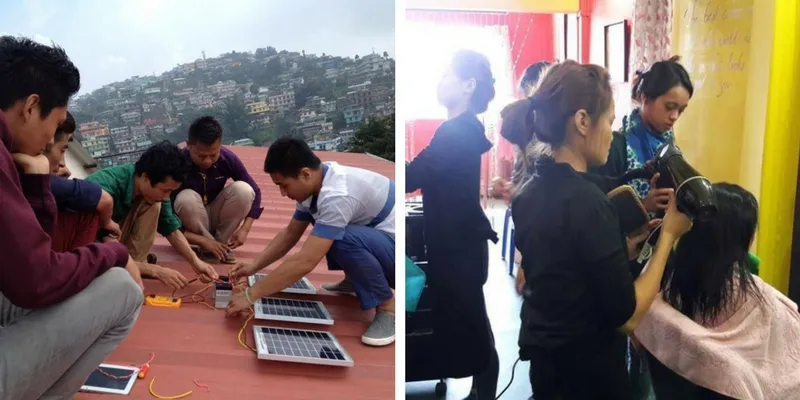
“We also provide to jobs to those who have an experience outside the state and came back to work here. They can also apply for senior posts,” she adds.
YouthNet has also tied up with companies in the aviation sector, and five-star hotels like JW Marriott, Pullman, and Leela, and also allows youth from Nagaland look for employment opportunities in other big cities.
“We give them an orientation for a week, and explain to them about the sector. Also, we keep in touch with them, especially the first-timers. We have a mechanism with which we track them and take care of the young peoples’ security and accommodation for a year, or until they can take care of themselves. Also, we take the full responsibility, so that parents know where their kids are going the work.”
YouthNet’s other department is the Nagaland Career Development Center, where youth are trained in soft skills, exposed to various sectors. The centre also works to upskill government officials.
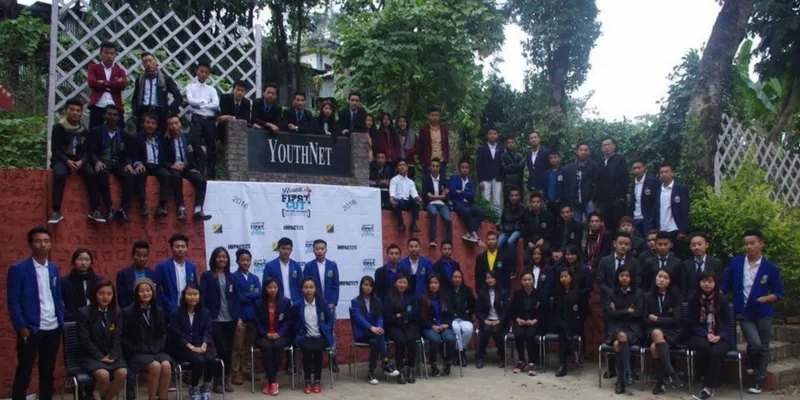
Fees for this course range from Rs 300 to 25 percent of a candidate’s first salary. YouthNet has also received funds from the central government under the Skill India Mission.
The organisation has a staff of 30, and claims to have impacted around 22,700 lives in the financial year 2016-17.
Glamorising entrepreneurship
“In 2013, we started with an event called ‘The Entrepreneur’, a competition for young entrepreneurs which is co-created with Jupiter Capital, an investment company, founded by Rajeev Chandrasekhar, also a Member of Parliament. In the programme, a boot camp held which is followed by a business plan is organized where Rajeev picks 'The Entrepreneur’. The winner goes on to pitch the idea with Jupiter capital and becomes a successful entrepreneur.”
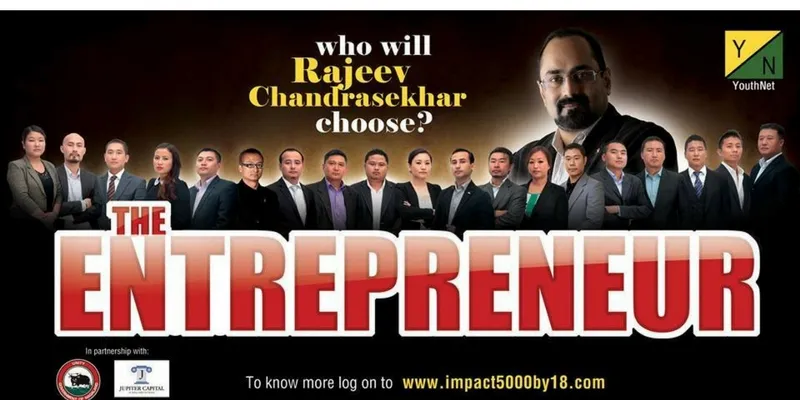
YouthNet has a similar competition for student entrepreneurs called the ‘First cut”.
“Most startups have technology-based products and services, but here in Nagaland we don’t have basic infrastructure like electricity and internet. Therefore, most of these entrepreneurs are into packaging, or selling agriculture products, transporting vegetables from x to y point, or maybe upskilling,” says Hekani.
YouthNet plans to encourage and help over 5,000 entrepreneurs by the end of this year, and is also opening a one-stop shop for all Nagaland-made products in association with the Government of Nagaland called ‘Made in Nagaland’.
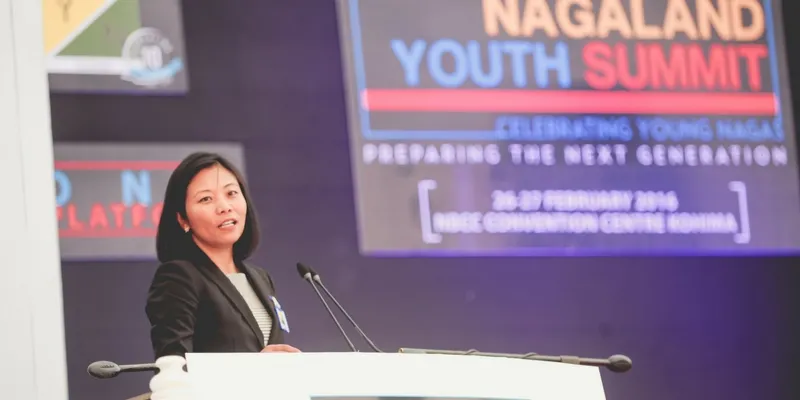
Hekani says she has failed several times but has never thought of quitting.
“Despite the ecosystem being challenging and not favourable in Nagaland, every day, we at YouthNet struggle together with a hope to change things for good.”







